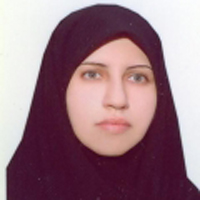The effect of hormonal combinations on in vitro propagation of Ginger (Zingiber officinale Roscoe)
Ginger (Zingiber officinale Roscoe) belongs to the Zingiberaceae family and it is one of the most important spices in the world which produces spicy and fragrant flavors and it has many healing properties. This plant does not have the ability to produce seeds due to sterility. The growth of the plant through the rhizome causes the cost of cultivation and the probability of pathogen attack. Therefore, propagation using in vitro tissue culture be effective method for increasing the rate of proliferation and infection control. For obtaining the better results in tissue culture, explants should be prepared from healthy, fresh and strong maternal sources. Somatic embryogenesis usually not used for propagation due to mutation, so it is better to use the rhizome buds as explant to preserve genetic characteristics.
For micropropagation, explants including shoot, leaf, collar and buds of ginger in were used and cultured on MS basal medium supplemented with 9 different hormonal combinations (BAP alone or in combination with NAA) for shoot induction. Shoots were transferred to MS medium containing 1 mg/l NAA or IBA for rooting. Plantlets were transferred to pots and gradually adapted to the greenhouse condition.
The best explant for fast and easy multiplication of ginger was the healthy rhizome. MS culture medium supplemented with 2 mg/l BAP and 1 mg/l NAA produced 7 shoots in each rhizome bud. The best treatment for rooting was MS medium containing 1 mg/l NAA which produced 7 roots per shoot. Then, the plantlets were successfully adopted in pots containing garden soil and cocopeat at greenhouse condition.
The results of this study showed that micropropagation of ginger plant is affected by the type of growth regulators and their concentration in MS medium and the rhizome buds were the best explants for direct in vitro propagation of ginger.
Auxin , Bud , Rhizome , Tissue Culture
-
Evaluation of Diversity in Morphological, Agronomical and Essential Oil Content Characteristics of Different Genotypes of Mentha longifolia L. from Iran
Alireza Moshrefi-Araghi, Seyyed Hossein Nemati *, Mahmood Shoor, Majid Azizi,
Journal of horticulture science, -
Studying the expression of some candidate MicroRNAs in Petunia under drought stress
Sakineh Moshtaghi, *, Hasan Marashi, Ahmad Sharifi
Iranian Journal of Plant Biology,


